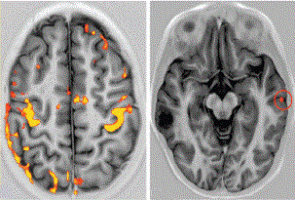
Researchers from the University of Seville and the University of Oxford have described how the presence of brain metastases causes acute cerebrovascular dysfunction from the early stages of the disease.
The study, whose main author was Manuel Sarmiento Soto, Marie Curie researcher and member of the Group on Mechanisms of Cell Death in Neurodegenerative Diseases at the University of Seville, shows that this alteration is chiefly caused by the activation of cells called astrocytes.
By using a specific treatment to override this activation, the researchers were able to return cerebrovascular flow to healthy levels.
This improvement in blood flow around the metastases can limit the neurological deterioration associated with the progression of this disease and improve the otherwise poor life expectancy of these patients.
In addition, the same specific inhibitors used in this study were also used in several ongoing clinical trials, a fact that could significantly shorten the delay in transferring the results obtained by US researchers to use in the clinic.
Astrocytes are the most abundant sort of cell in the central nervous system.
One of their critical functions is to protect the neurons, thus ensuring a proper supply of nutrients from the blood flow.
As an organ, the brain consumes high levels of energy.
Any failure in the blood supply to any region of the brain could cause irreversible damage leading to the onset of various pathologies such as Alzheimer's disease, Parkinson's or even death.
The key role played by the astrocytes in brain metastasis has been thoroughly proven.
For example, in the specific case of brain metastases from breast cancer, when the tumour cells reach the brain they produce a significant activation of astrocytes causing a dysregulation of the afferent blood flow.
This causes a decrease in brain perfusion in the areas adjacent to the brain metastases, with the consequent damage that this drop could cause to neurons and other brain cells.
Source: UNIVERSITY OF SEVILLE